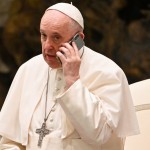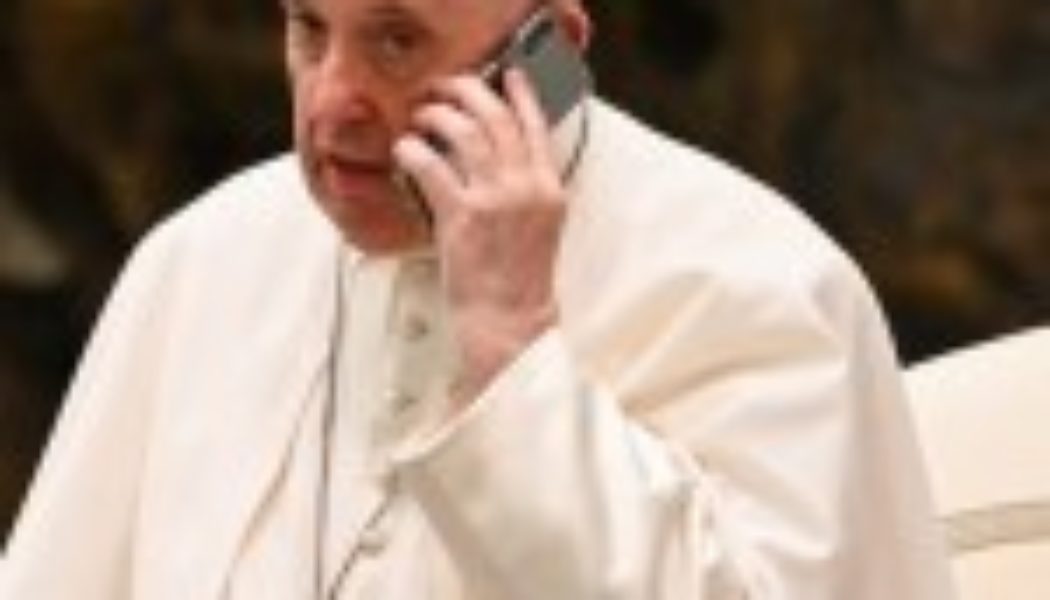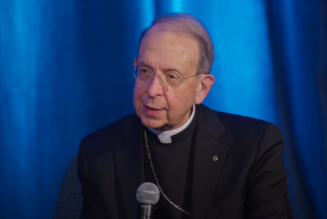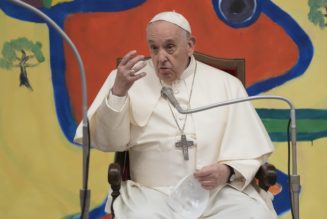 In Pope Francis’ trip to Budapest, there is an issue that must make us reflect. Pope Francis wanted to go to Hungary for a pastoral visit only, without even meeting the government. This choice also betrayed some hard feelings towards the executive headed by Viktor Orban, whom the Vatican also targeted for its migration policies.
In Pope Francis’ trip to Budapest, there is an issue that must make us reflect. Pope Francis wanted to go to Hungary for a pastoral visit only, without even meeting the government. This choice also betrayed some hard feelings towards the executive headed by Viktor Orban, whom the Vatican also targeted for its migration policies.
In doing so, however, Pope Francis contravened every protocol and even courtesy towards the host State. The Pope is also a head of state. When he visits a country, the meeting with the president is a sign of institutional courtesy, as is the visit to presidential palaces. A meeting with civil society had been requested for Hungary. It was a reasonable request because the Pope always gives a speech to the diplomatic corps and members of civil society. Isn’t the Pope, in the end, a head of state?
Pope Francis, however, did not want to go to the Presidential Palace at all. So, in the end, out of institutional courtesy, he had to grant the meeting with the president but asked that it not take place at the Presidential Palace. It happened, therefore, at the Museum of Fine Arts, next to Piazza Degli Eroi.
President Janos Ader, who had already met Pope Francis at the Vatican, made it known that Prime Minister Viktor Orban would accompany him. The Pope, not to be outdone, said he would be accompanied by Cardinal Pietro Parolin, Vatican Secretary of State, and Archbishop Paul Richard Gallagher, Vatican Secretary for Relations with States. The Hungarian delegation was thus reinforced with the Deputy Prime Minister, who also welcomed the Pope at the airport.
Pope Francis has thus granted the Hungarian state a bilateral meeting, de facto. A high diplomatic level meeting, which gives even greater legitimacy to the executive, and which sets it apart from relations with other nations, so much so that it is possible that the following countries visited, starting with Slovakia, will also ask for a bilateral meeting.
In taking this position, therefore, Pope Francis ended up doing Orban’s government a favor. A meeting with all civil society would have been different, because it would have included the opposition to the government. But the Pope did not want this. He probably misinterpreted the request because he read it as a personal communication, not in a diplomatic language.
And this is the point: there is a world that concerns the Holy See that Pope Francis perhaps does not understand. Indeed, he ignores it, using personal and personalist categories to tackle complex issues. It will be a central issue that awaits Pope Francis in October
In October, the famous trial of the Secretariat of State investment in a luxury property in London will resume. At the beginning of the trial, one of the lawyers spoke of a “special court” and highlighted four rescripts that Pope Francis had readily signed to keep the investigation going. One of these rescripts even abolished the office secrecy.
Pope Francis behaved, in the end, like a Pope King. But like a Pope King of the nineteenth century, when the Church still had a temporal power and a state to administer, and not the tiny state of Vatican City of today, which only serves to give a body to a soul, which is precisely the Holy See.
Since the fall of the papal state, the Holy See has always looked to the international world, and did so even without a territory. Thus, when the tiny Vatican state took its first steps in 1929, it was decided to borrow a code of legal norms from Italy for pragmatism and because, after all, it was never thought that there would really be a need to apply those norms.
Over the years, the Holy See has increasingly become an international entity, has actively participated in multilateral forums, and has negotiated human rights treaties. Nevertheless, the Vatican City State continued its life. Sometimes the regulations were updated, but always a step behind the spirit of the times.
At a time when states count less and less, what should the Vatican do? In general, the Holy See anticipated trends, looking beyond the structures. Yet, while the nation-states are experiencing a crisis, and while the Holy See has increasingly aimed at the multilateral, looking beyond contingent situations (see Pope Francis’ 2019 speech to ambassadors), Pope Francis, with his actions, nationalizes the Holy See. Thus, the Vaticanization of the Holy See, when the Vatican City State becomes more critical than its international personality, coincides with a sort of “corporatization” of the Holy See itself.
In recent years, there have been many reforms that had, at the base, the idea that the Holy See is a company. And even today, the adjustments on economic issues, the appointments of former lay managers to command posts (Fabio Gasperini at APSA; Maximino Caballero Ledo at the Secretariat for the Economy) suggest that the reform of the Curia is done with the structural framework of companies, rather than following a vision.
Not that the idea of putting laypeople and experts in the ranks is wrong in itself. The problem is the underlying philosophy, how the Holy See is considered, and how one thinks of facing crises. Because what we are facing are structural crises, not management crises.
In handling things in this way, Pope Francis forgets that the Holy See was prophetic in its desire to be subject to non-territorial international law after the end of the papal state and even after the birth of the Vatican.
Pope Francis has returned to the paradigm of the Pope-King who signs rescripts, enters into the merits of inquisitive trials, acts as accuser and legislator at the same time.
Today, these acts are a civil death sentence because the new executioner is the mud machine and the summary judgments of the media, which affirm the presumption of innocence, but then shoot people before asking any kind of explanation, as in the Wild West.
All this comes from a poor understanding of what the Holy See is and why it serves the people of God. The same poor knowledge that led to grant a bilateral meeting to Hungary when for months he made it known that he did not want to see the Prime Minister.
Ultimately, it’s about putting things into perspective, to understand them. And only in this way can a real reform be carried out. Otherwise, it will be like in the Italian novel The Leopard: everything must change so that everything stays the same. Because all the great initiatives of Pope Francis, until now, have not brought a necessary communion into the Church. And that is needed today.
Join Our Telegram Group : Salvation & Prosperity









